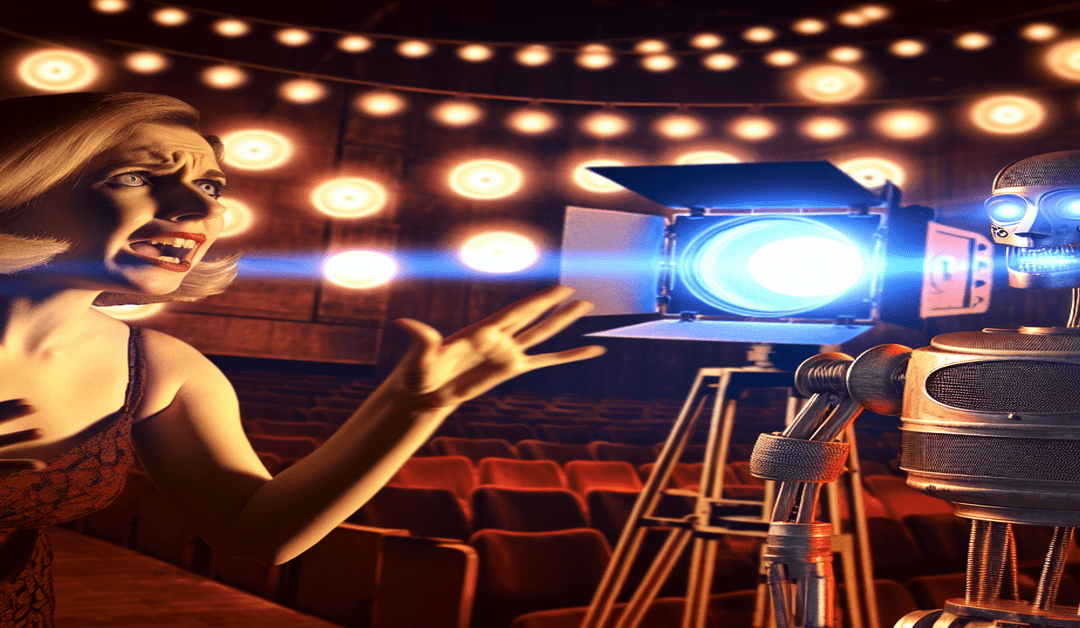Lisa Kudrow Sparks Debate on AI in Filmmaking: The Future of Entertainment
In a recent article from The Independent, actress Lisa Kudrow has voiced her concerns about the use of artificial intelligence (AI) in the upcoming Tom Hanks film, “Here.” Kudrow’s comments have reignited the ongoing debate surrounding the role of AI in the entertainment industry, raising important questions about the future of filmmaking and the value of human creativity.
The Rise of AI in Hollywood
The use of AI in the film industry has been steadily increasing in recent years, with advancements in technology allowing for more sophisticated and realistic digital creations. From virtual actors to computer-generated landscapes, AI has the potential to revolutionize the way movies are made. However, as Kudrow’s criticism highlights, not everyone in Hollywood is embracing this change with open arms.
Authenticity and the Human Element
At the heart of Kudrow’s argument is the idea that AI-generated content lacks the authenticity and human touch that are essential to great filmmaking. She suggests that the use of digital versions of actors, like the AI-created Tom Hanks in “Here,” may undermine the craft of acting and the emotional connection that audiences have with real human performers.
This sentiment is echoed by many in the industry who believe that the magic of cinema lies in the unique personalities, quirks, and imperfections that human actors bring to their roles. The fear is that by relying too heavily on AI, films may become soulless and disconnected from the human experience.
The Debate Over Job Security
Another major concern raised by Kudrow’s comments is the potential impact of AI on job security within the entertainment industry. As digital actors become more prevalent, there is a growing fear that human actors may find themselves replaced by their virtual counterparts.
This is particularly worrisome for older actors or those who don’t fit the conventional Hollywood mold, as AI could potentially be used to create idealized or age-defying versions of performers. The rise of AI in filmmaking could also lead to a reduction in the number of acting opportunities available, as well as a shift in the types of roles that are prioritized.
The Need for Adaptation and Innovation
Despite the valid concerns raised by Kudrow and others, it’s important to recognize that the integration of AI into filmmaking is likely inevitable. As with any major technological advancement, there will be a period of adjustment and uncertainty as the industry adapts to new tools and workflows.
However, rather than resisting change altogether, it may be more productive for actors and filmmakers to find ways to work alongside AI and leverage its capabilities to enhance their craft. For example, AI could be used to create more immersive and interactive viewing experiences, or to generate realistic digital environments that would be too costly or dangerous to film in real life.
Finding a Balance
Ultimately, the key to successfully navigating the rise of AI in Hollywood will be finding a balance between technological innovation and human creativity. While AI can certainly offer new possibilities and efficiencies in filmmaking, it should not come at the expense of the artistic vision and emotional depth that only human beings can provide.
As the debate surrounding AI in the entertainment industry continues, it will be important for actors, directors, and studios to engage in open and honest conversations about how to best utilize these new tools while still preserving the integrity of the filmmaking process. By working together and embracing change, the industry can chart a path forward that celebrates both the power of technology and the enduring value of human storytelling.
#ArtificialIntelligence #Filmmaking #LisaKudrow #TomHanks #HollywoodDebate
-> Original article and inspiration provided by Lydia Spencer-Elliott at The Independent
-> Connect with one of our AI Strategists today at Opahl Technologies

